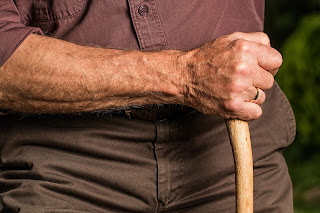Regular and Steady
Few topics make me uncomfortable and this is one of
them. There are two reasons for this.
First, the discomfort of irregular, or constipated, or
incomplete bowel movement is only matched by having to describe it and offer
recommendations for what ails many adults, especially as they become older. Though
thinking about it is, hopefully, not a recurrent event.
The second reason for the reluctance to write about it is
that the recommendations, because they refer to a specific product are best
left to a physician (which I am not) or other medical professionals. I will gladly offer suggestions, but for
brand names, you need to consult with a “higher” authority.
One of the first things that must be dispelled is that there
is such a thing as “normal” bowel movement schedule. The frequency of trips to
the bathroom for an average person ranges widely. Some make the trek three times a day, while
others need to use the restroom only three times a week.
The second notion that should be discarded is that bowel
movements alone define constipation. If you are defecating several times a week,
but are straining in the bathroom, or passing weird looking stools, or feel
that you have more feces in you that has to be flushed down the toilet bowl,
you may still be constipated.
Before you consider medication there are several habits and
practices that you should try. Changing
your lifestyle may help not only your bowel movements, but your health in
general.
- Become active – With proper fiber consumption and hydration, avoiding the couch may be helpful. Being old and adopting a sedentary regimen is not synonymous. Exercise is right for you, for many reasons, including more regular bowel movements.
- Schedule your bathroom trips – Make a point of trying to use the restroom after you eat. After (or before) breakfast is a great time because it tells your body – and that would include your gastronomical tract-that you are ready for a new day.
- Add fiber to the menu - Adding just under 30 grams of fiber a day may help in attaining a more regular bowel movement. You may find relief by eating foods high in fiber, such as red kidney beans, avocados or peanuts. If they all are unfavorable, or you are prohibited from eating them, try (only with your doctor’s blessing and recommendation) an over-the-counter (OTC) food supplement. Be careful not to add too much fiber to quickly as this may cause bloating, gassiness or even more constipation.
- Try physical therapy – The pelvic floor, abdominal, and sphincter muscles may need to be strengthened, especially if you suffer from chronic constipation. Your medical professional should be able to tell you whether you need such physical therapies or if you should depend on drugs to help you spend less time on the throne.
- Consider a laxative - The last recommendation is to get a laxative that works best for you. Again, before heading on that route, talk to your medical or health guru (not your know-it-all in-laws) for recommendations. Laxative medications, despite rumors to the contrary, are not addictive. If you don’t trust me, ask your physician.
Have any thoughts on the issue?
Share them with us at www.MatureAging.com,
and we may post them (only after getting your permission) in a future edition.
Till next time,
Josh




Comments
Post a Comment